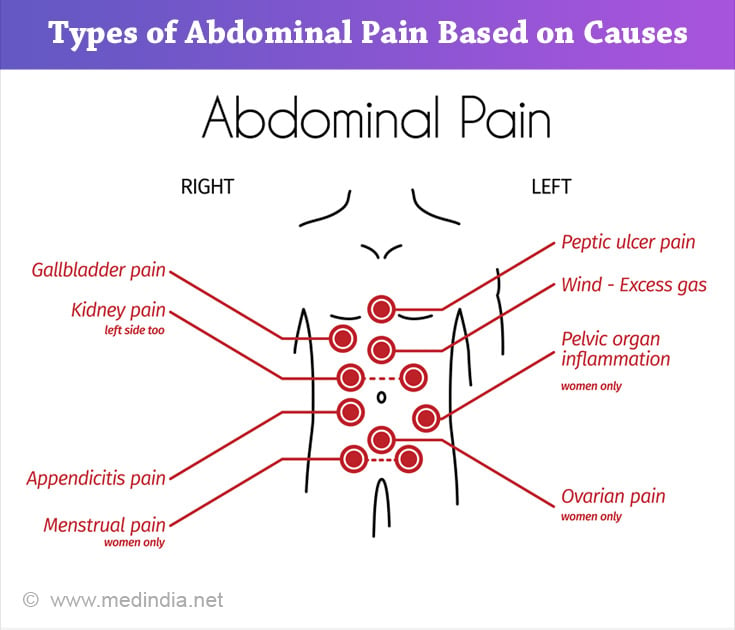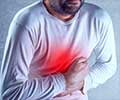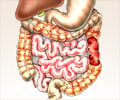- Abdominal Pain - (https://www.ncbi.nlm.nih.gov/books/NBK412/)
- Abdominal pain - (https://www.mountsinai.org/health-library/symptoms/abdominal-pain)
About
Almost everyone encounters a stomach ache at some point in life, and in most instances, it's not a serious concern, often arising from factors like overeating, gas, or indigestion. Diagnosing the cause of stomach pain involves considering its characteristics, location, and intensity.
Abdominal discomfort may manifest as crampy, throbbing, dull, sporadic, or sharp sensations, commonly referred to as a stomachache. When the pain is localized, it is confined to a specific region in the abdomen, typically indicating issues with a specific organ.
Doctors use these factors, along with physical exams and medical tests, to determine the cause and appropriate treatment for stomach pain. There are various types of stomach pain, each characterized by its sensation and location. Causes range from harmless to serious medical conditions(1✔ ✔Trusted Source
Abdominal Pain
Go to source).
Types of Stomach Pain
| Types of Abdominal Pain | Causes | Characteristics |
| 1. Constant Dull Ache | Peritoneal Inflammation | - Sustained and aching sensation. |
| - Associated with inflammation of the peritoneum. | ||
| - Felt directly over the inflamed area. | ||
| - Severity depends on the extent of contamination. | ||
| 2. Intermittent Pain | Obstruction | - Not continuous; comes and goes. |
| - Associated with hollow organ obstruction. | ||
| - Colicky; relief with gas or stool passage. | ||
| 3. Crampy Pain | Issues with Organs | Characterized by spasmodic contractions. |
| - Linked to problems in specific organs. | ||
| - Nature and location depend on the affected organ. | ||
| 4. Burning Sensation | Gastritis or Ulcers | - Distinct burning sensation. |
| - Affects upper midabdomen. | ||
| - Indicates gastritis or peptic ulcers. | ||
| 5. Sharp or Steady Pain | Acute Conditions | - Signifies acute conditions like appendicitis. |
| - May be localized or widespread. | ||
| - Demands immediate attention. | ||
| 6. Colicky Pain | Intestinal or Biliary Issues | - Crampy, spasmodic nature. |
| - Linked to problems in the intestines or biliary system. | ||
| - Relieved by actions like passing gas or stool. | ||
| 7. Radiating Pain | Spreads to Other Areas | - Pain extends from the original site. |
| - Example: Kidney stone pain radiating from flank to groin. | ||
| 8. Referred Pain | Perceived at a Different Location | - Pain felt away from the actual source. |
|
- Example: Gallbladder disease causing pain in the shoulder or back(2✔ ✔Trusted Source Abdominal pain Go to source). |
Types of Commonly Encountered Stomach Pain
1. Uncomfortable Bloating:
Possible Causes: Excess gas due to overeating, consumption of gas-producing foods, swallowing air, or gastrointestinal conditions such as irritable bowel syndrome (IBS).
Management and Treatment: Over-the-counter gas relief medications, dietary changes (avoiding gas-producing foods), probiotics, and lifestyle modifications such as regular exercise.
2. Sharp Pain in the Lower Right Side of your Abdomen:
Possible Causes: Appendicitis, kidney stones, ovarian cysts, or pelvic inflammatory disease.
Management and Treatment: Surgical removal (appendectomy) for appendicitis. Kidney stones may pass naturally, and pain management is often used. Ovarian cysts may resolve on their own or require medical intervention. Pelvic inflammatory disease is treated with antibiotics.
3. Sharp Stabbing Pain in your Upper Right Abdomen:
Possible Causes: Gallstones, gallbladder inflammation (cholecystitis), liver conditions, or pneumonia affecting the lower right lung.
Management and Treatment: Surgical removal of the gallbladder (cholecystectomy) for gallstones or cholecystitis. Treatment for liver conditions depends on the specific diagnosis. Pneumonia is treated with antibiotics and supportive care.
4. Pain or Burning in your Upper Middle Abdomen:
Possible Causes: Peptic ulcer, gastritis, gastroesophageal reflux disease (GERD), or pancreatic disorders.
Management and Treatment: Antacids, acid-reducing medications, antibiotics (for H. pylori infection), lifestyle changes (avoiding irritants), and medications to protect the stomach lining. Pancreatic disorders may require specific treatments depending on the underlying cause.
5. General Abdominal Pain with Diarrhea:
Possible Causes: Gastroenteritis, food poisoning, inflammatory bowel disease (IBD), lactose intolerance, or medication side effects.
Management and Treatment: Fluid replacement to prevent dehydration, over-the-counter anti-diarrheal medications, rest, and a bland diet. Treatment for IBD involves medications to control inflammation.
6. General Abdominal Pain with Bloating:
Possible Causes: Irritable Bowel Syndrome (IBS), small intestinal bacterial overgrowth (SIBO), celiac disease, constipation, or certain medications.
Management and Treatment: Dietary changes (low-FODMAP diet for IBS), medications (antispasmodics, laxatives), stress management, and probiotics.
7. Pain with Bloody Diarrhea:
Possible Causes: Inflammatory Bowel Disease (ulcerative colitis, Crohn’s disease), infectious colitis, diverticulitis, or colorectal cancer.
Management and Treatment: Medications (anti-inflammatory drugs, immunosuppressants) for IBD, antibiotics for infectious colitis or diverticulitis, and surgery in severe cases.
8. Cramping Pain in the Lower Abdomen During Menstruation:
Possible Causes: Dysmenorrhea, endometriosis, fibroids, pelvic inflammatory disease (PID), or adenomyosis.
Management and Treatment: Over-the-counter pain relievers (NSAIDs), heat therapy, hormonal treatments (birth control), lifestyle changes, and in some cases, surgical intervention.
9. Stabbing Pain in the Upper Left Abdomen:
Possible Causes: Pancreatitis, gastric ulcer, spleen issues, left-sided pneumonia, or referred pain from the heart.
Management and Treatment: Addressing the underlying cause (abstaining from alcohol for pancreatitis, medications for ulcers), pain management, lifestyle changes, and, in some cases, surgery.

If experiencing severe symptoms like bleeding, excessive vomiting or diarrhea, seek immediate medical attention. For mild to moderate stomach pain without bleeding, or persistent discomfort, consult with a gastroenterologist.





















